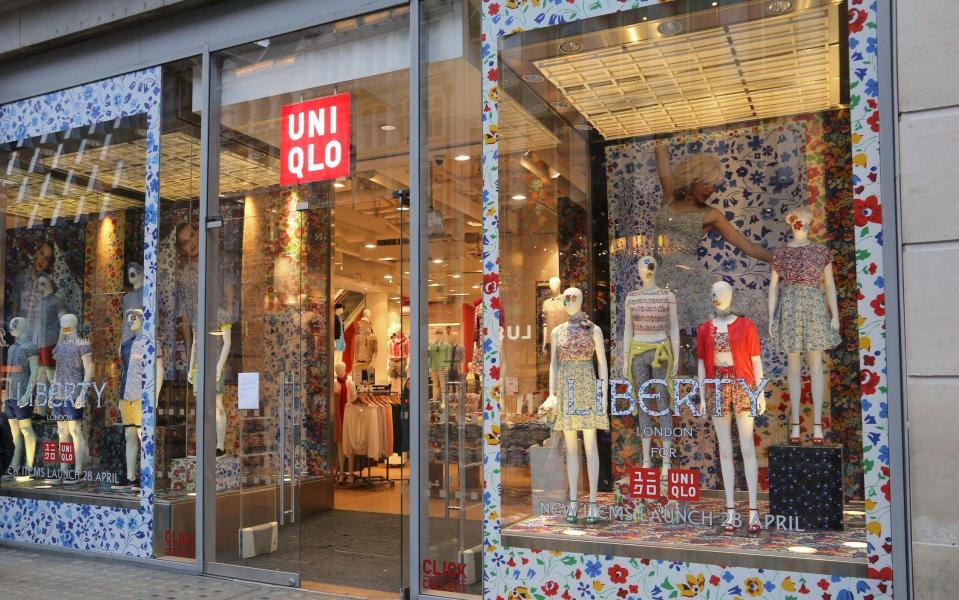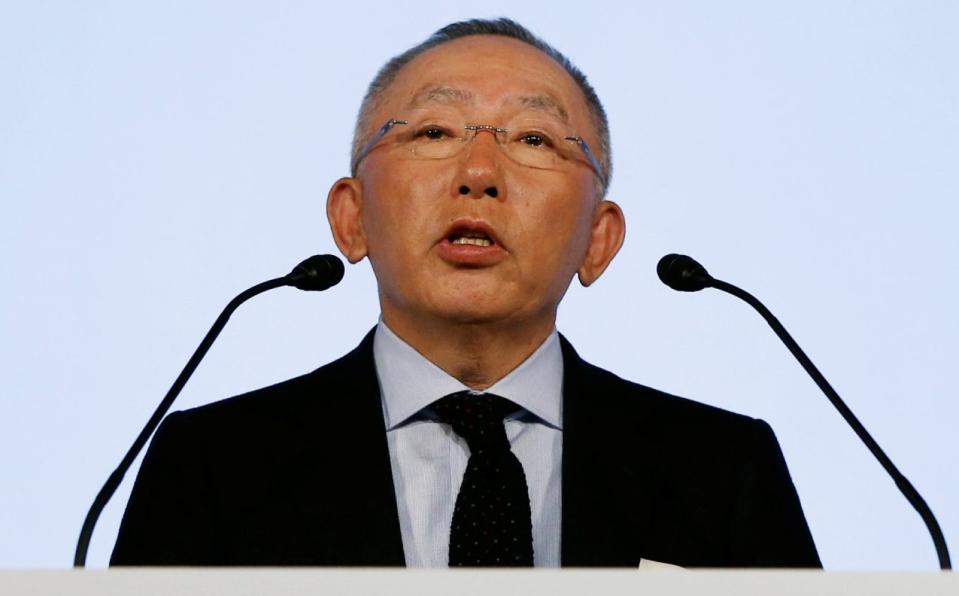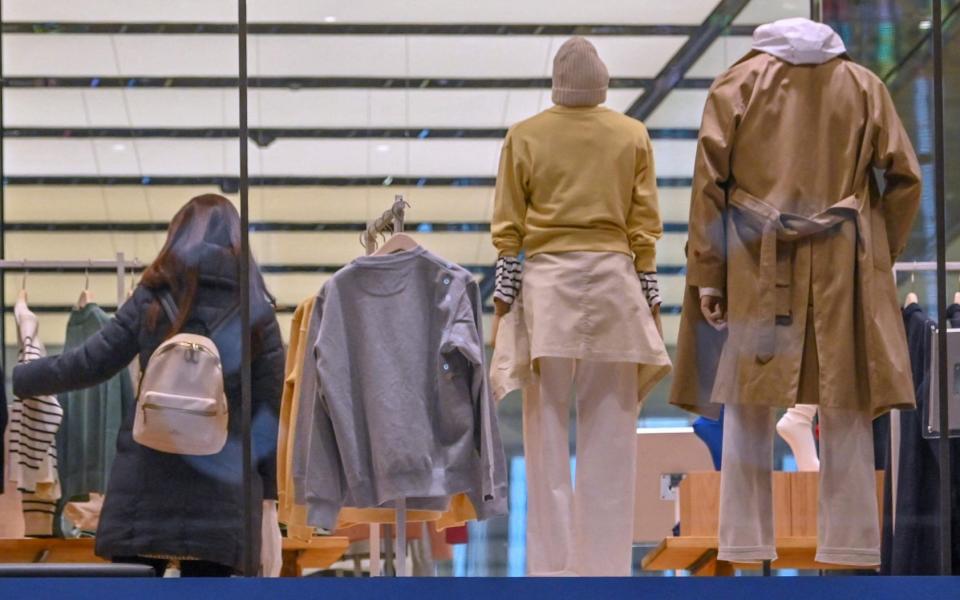The head of Uniqlo’s UK division has vowed to continue cutting prices as inflation eases, as the retailer tries to attract price-conscious shoppers to fuel its expansion.
Alessandro Dudech, 34, who runs Uniqlo’s 17 sites in Britain, said the fall in the cost of materials has allowed the company to offer cheaper prices on premium items.
“We believe in passing on those price reductions,” he says. “As the prices of natural resources like cashmere and merino go down, we are trying to give it back to customers.”
It says Uniqlo has already reduced the price of its cashmere jumpers from £129 to £109 over the past year, while many of its jumpers and hoodies have also been reduced from £39.90 to £34.90.
Dudech’s attempt to make products more affordable comes as pressure mounts on retailers to lower prices in line with cooling inflation.
The price inflation rate for clothing and footwear fell from 6.2 percent in October to 5.7 percent in November, according to the British Retail Consortium, marking the eighth consecutive monthly drop.
“When there is a chance to make our products more affordable while maintaining the same quality, we absolutely do it,” Dudech says.


His comments come as he leads the Japanese retailer’s expansion into the UK, with the business focused on challenging high street rivals such as Zara, Next and H&M.
Uniqlo, which launched in Britain 16 years ago, recently announced the opening of a 1,430 square meter store in Edinburgh and will soon open a new flagship store on London’s Oxford Street.
The latter will be the third on Europe’s busiest street, which is undergoing a huge renovation project after years of decline.
Uniqlo was founded in 1984 by Tadashi Yanai, who opened his first store in Hiroshima after being inspired by British retailer Next.
Over the past 40 years, Tanai has transformed Uniqlo into one of the world’s largest fashion retailers, with more than 2,400 stores in 25 countries and almost $17 billion (£13 billion) in sales worldwide.
It is known for its casual and affordable clothing, as well as its signature “HeatTech” fabric, which converts moisture into heat.
Its popularity has seen it surpass household names such as Gap and Ralph Lauren, and it recently became the world’s third-largest fashion retailer behind H&M and Zara owner Inditex.


Yanai, now Japan’s richest man, has spoken publicly of his desire to unseat Uniqlo’s remaining rivals.
Crucial to its plan is expanding the business in Europe and the United Kingdom, with Dudech being responsible for the latter.
“There are many competitors fighting for locations,” he says. “But I can tell you that our customer base is growing very quickly.”
The company does not disclose its financials in the UK, but recent accounts from Uniqlo Europe reveal that revenue rose 52 per cent to €963m (£834m) last year.
As for Dudech, she has spent her entire professional life working for Uniqlo, aside from a brief stint modeling for Abercrombie & Fitch.
Born near Milan, he came to Uniqlo in 2012 after abandoning his plans to go into consulting.
“I always thought I’d end up going into finance or consulting,” he says. “That industry has an appeal, but I tried to imagine myself in an office, in a cubicle, instead of being in the workshop. And I thought [retail] It is what I want to do”.
Since rising through the ranks, from graduate school to UK operations director, Dudech has embraced Uniqlo’s simplicity.
“Coming from Italy, we are home to some of the most logo-rich brands you can imagine,” he says.
“With Uniqlo, there is no logo. I thought I knew a thing or two about fashion as an Italian, but I had never heard of this company that comes from Japan; I just thought it was very intriguing.”


However, although the business is expanding in the UK, it admits it still has a long way to go before reaching the size of rivals such as Zara and Next, which have 70 and 500 stores in the UK respectively.
“We are entering the European market, but simply repeating what other brands are doing will not be enough,” says Dudech.
Its clothes have so far proven a hit with scores of shoppers in the UK, although most of its stores are still largely located near affluent London neighborhoods such as Wimbledon and Wandsworth.
Given its growing popularity, Uniqlo has come under increasing scrutiny for the simple nature of its clothing.
In Japan, its clothes became so ubiquitous that in the early 2000s Uniqlo received the nickname “Unibore,” according to New York Magazine, which explored Uniqlo’s rise in the United States in a 13-year-old article titled “ “Uniqlones.”
However, despite the criticism, Dudech says the business aims to go beyond what its fast fashion rivals offer, with Uniqlo now increasingly focusing on repairs.
At its Regent Street store, the business now offers to fix customers’ damaged clothing or make alterations, albeit for a price.
“Obviously there is a small fee to pay,” says Dudech. “But if you go elsewhere, in terms of other small tailoring services, [they charge] a much higher price.”
This revitalized business model has increased demand, although Uniqlo’s success has been boosted through social media.
This was sparked when a £15 banana-shaped Uniqlo bag went viral on TikTok last year after a user posted a video of her unpacking her belongings.
It struck a chord with TikTok’s Gen Z audience, with the hashtag #uniqlobag since racking up 126 million views.
The online phenomenon sparked a surge in sales that saw the accessory become Uniqlo’s best-selling bag of all time, without the retailer spending a cent on marketing.
As well as expanding its presence in the UK, Dudech also wants to improve the in-store customer experience – its Covent Garden store now features a Japanese tea room.
This ambition is proof, he says, of Uniqlo’s commitment to physical stores.
“I don’t believe in the death of the high street,” says Dudech. “I think the post-pandemic period has shown that people were eager to connect and socialize.
“I think Main Street offers a place to do that.”